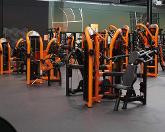see all jobs
Premier League remains most powerful league in Europe
Deloitte & Touche has published its Annual Review of Football Finance, demonstrating that English football, particularly the Premier League, is holding its own as the most financially powerful football league in Europe.
The ongoing success of the English Premier League was again noted by the report – on the tenth anniversary of the Premier League, it was highlighted that turnover has increased seven fold since 1991/92.
Turnover for the 2001/02 season was £1,132m.
Premier League teams also reported higher operating profits than in recent seasons – £84m is the highest level since 1997/98.
However, pre-tax losses grew dramatically – from £22m to £137m and only 28 per cent of clubs made a pre-tax profit.
Matchday income increased by 10 per cent to £322m thanks mainly to the seventh successive increase in Premiership attendances (3 per cent) and increased ticket yields.
Premiership clubs are still spending a large percentage (62 per cent) of their income on staff wages, however indications are that wage increases will steadily decelerate.
From a facilities investment perspective, the signs across the whole of the football league are encouraging – the total investment in stadia was again over £190m.
While the majority of the £144m spent in the 2001/02 season was in the Premier League, the remainder of the football league spent £47m – a sizable increase from 2000/01 (£35m). This demonstrates, the report concludes, that “clubs continue to recognise the importance of their facilities in generating income.”
In comparison with the other major European leagues, the report suggests that British football has seen “the transformation of stadia into profit centres operating on a more regular basis than once a fortnight.”
The English league is the only league to have maintained year-on-year attendance growth since the mid-90s – average attendance for the 2001/02 season was 34,324.
For the future, the report perceives that major developments and new-build projects are far from being certain, highlighting recent problems with Everton, Arsenal, Wimbledon and Fulham as indicative of a general downward trend in capital investment.
It concludes that for the majority of teams in English football, the priority will be to continue to invest in enhancing the alternative revenue potential of their grounds for matchday and non-matchday markets.
This continues to be a way that English clubs can clearly outperform their European counterparts.
- News by sector (all)
- All news
- Fitness
- Personal trainer
- Sport
- Spa
- Swimming
- Hospitality
- Entertainment & Gaming
- Commercial Leisure
- Property
- Architecture
- Design
- Tourism
- Travel
- Attractions
- Theme & Water Parks
- Arts & Culture
- Heritage & Museums
- Parks & Countryside
- Sales & Marketing
- Public Sector
- Training
- People
- Executive
- Apprenticeships
- Suppliers




























